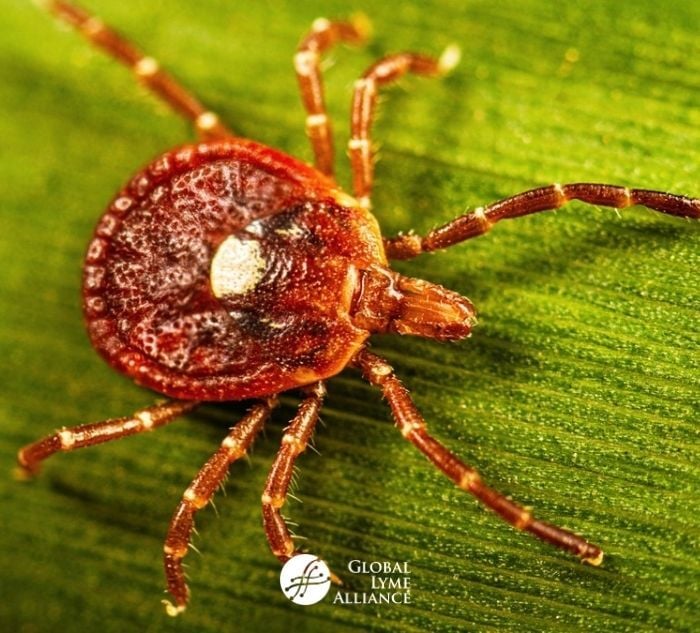-1.jpg)
The article discusses the one thing that has helped me most in my Lyme journey.
Lyme warriors write to me every day to ask what helped me get better. Many of them have been suffering from persistent symptoms for months or years. They find inspiration reading about how well I’m doing, and hope I can give them the magic answer. Most ask, “What medication did you take?” I wish there was a magic answer I could give, but the fact is, no two cases of tick-borne illness are alike. What worked for me might not work for others, and my own protocol has changed many, many times over more than 15 years of treatment.
Because it doesn’t help to give out my ever-changing protocol, I have written about various other therapies and lifestyle changes that have worked in conjunction with medication to get my tick-borne illnesses into remission and keep them there. These include adjunct therapies like integrative manual therapy and neurofeedback, talk therapy, and an anti-inflammatory diet. I’ve learned to pace myself physically and cognitively, have set boundaries around my needs, and have reframed my thinking about living with a chronic illness. My wellness is a result of a complex interplay of many factors, changes, and techniques. I can’t point to any one of them as more helpful than another.
Support
.jpg?width=290&name=Gala%20PR%20Image%20(15).jpg) But if I had to name the one thing that has been the most helpful in my Lyme journey, it would be support. Imagine what happens when someone you know is diagnosed with cancer. That person will suffer physically and emotionally, but they will not do it alone. Friends and family will start websites, fundraisers, and meal trains. They’ll drive the patient to appointments, sit with them afterwards, do their dishes, help with their kids, water their plants. They’ll send cards and flowers, and call often to check in. They will never say to the patient, “Aren’t you over that yet?” or, “Maybe you don’t really have cancer. Maybe it’s just all in your head.” The patient will be enveloped in support that will allow them to focus solely on getting well.
But if I had to name the one thing that has been the most helpful in my Lyme journey, it would be support. Imagine what happens when someone you know is diagnosed with cancer. That person will suffer physically and emotionally, but they will not do it alone. Friends and family will start websites, fundraisers, and meal trains. They’ll drive the patient to appointments, sit with them afterwards, do their dishes, help with their kids, water their plants. They’ll send cards and flowers, and call often to check in. They will never say to the patient, “Aren’t you over that yet?” or, “Maybe you don’t really have cancer. Maybe it’s just all in your head.” The patient will be enveloped in support that will allow them to focus solely on getting well.
If that same person had Lyme disease instead of cancer, the response might be very different. Some Lyme warriors have excellent support networks, but too many are misunderstood by family, friends, and doctors alike. Not only do these patients have to fight to get well, but they also have to fight to be believed. They spend energy they don’t have trying to convince others of their suffering. They often don’t get the help they need, whether it’s running an errand, appealing an insurance denial, or just having a comfortable shoulder to cry on. Lyme patients need and deserve the same outpouring of support that patients with better-known and less-controversial illnesses count on.
When I first got sick with mono that slipped into chronic Epstein-Barr virus, I struggled to get a diagnosis. Two years later, I was also diagnosed with underlying tick-borne infections. I thought I finally had the magic answer—an infection that could be treated! Little did I know what I was up against. The subsequent years were an uphill battle not just for wellness, but for validation. I had to find the right medical support, and figure out who I could talk to that would stand beside me on the journey. I had to learn to brush off the naysayers and to trust that I knew my body best.
My friends supported me unconditionally, even if they didn’t fully understand my illnesses. They started email support chains for me. They came to visit. They called and sent cards. My family had a harder time understanding tick-borne illnesses, and chronic illness in general, at the beginning. They wondered when I would get well, how much longer it would take, whether I had something else entirely. It wasn’t easy for them to have me under their roof as an adult, and it wasn’t easy for any of us to communicate our feelings and needs. Over time, their Lyme literacy—and their understanding—has improved dramatically. We’ve all come to understand what it means for a family member to live with a chronic illness, which has made all the difference in my healing journey.
When I got COVID-19 in 2020, it didn’t take years for me to get the support and understanding I needed. Even with a (false) negative initial test, no one questioned whether I actually had COVID-19. No one chided me for being lazy. People checked in every day, and the whole world was on pause with me. What a difference that camaraderie made! With COVID-19, I was lonely because I was quarantined, but I never felt alone. With tick-borne illness, I wasn’t lonely because I was around other people, but I often felt alone.
I have learned first-hand that any challenge we face in life is easier with support. If you know someone who has Lyme disease, ask them, “How can I best support you?” Or, ask yourself, “If this friend had cancer or COVID-19, what would I do to support them?” The answer will likely make your friend’s journey a little easier.

Jennifer Crystal
Writer
Opinions expressed by contributors are their own. Jennifer Crystal is a writer and educator in Boston. Her work has appeared in local and national publications including Harvard Health Publishing and The Boston Globe. As a GLA columnist for over six years, her work on GLA.org has received mention in publications such as The New Yorker, weatherchannel.com, CQ Researcher, and ProHealth.com. Jennifer is a patient advocate who has dealt with chronic illness, including Lyme and other tick-borne infections. Her memoir, One Tick Stopped the Clock, was published by Legacy Book Press in 2024. Ten percent of proceeds from the book will go to Global Lyme Alliance. Contact her via email below.






-2.jpg)